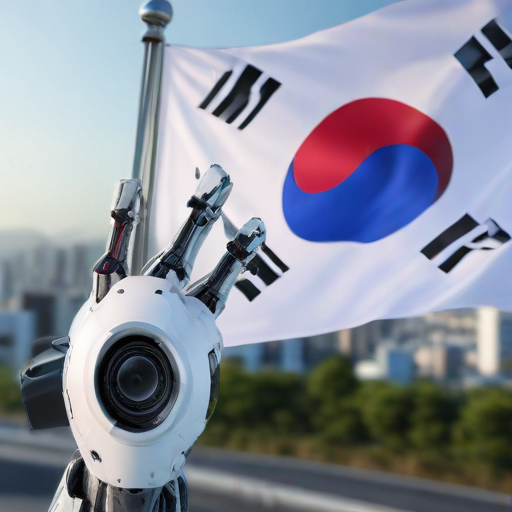South Korea is experiencing a remarkable increase in productivity driven by artificial intelligence (AI), setting it apart from most global economies. However, analysts from Bank of America warn that escalating tensions between the U.S. and China regarding semiconductors could pose risks to this positive trajectory.
According to a recent report by Bank of America Global Research, the semiconductor industry is vital for South Korea, as it constitutes 17% of the country’s exports. South Korea has emerged as a leading beneficiary of the AI boom, evidenced by a year-over-year increase of over 50% in exports. The report emphasizes that ongoing investments in AI research and development, along with a growing portfolio of AI-related patents, are likely to bolster South Korea’s position in AI adoption in the long run.
Despite these promising developments, the report cautions that geopolitical tensions, particularly between the U.S. and China, may disrupt the semiconductor supply chain, which could hinder South Korea’s AI growth. Although South Korea has diversified its chip exports away from China in recent years, the significant reliance on China and Hong Kong—accounting for over 30% of its chip exports as of 2023—remains a concern. Exports to the U.S. are comparable, further complicating the landscape.
Bank of America analysts indicated that increased U.S. trade restrictions on the export of advanced or AI-related chips to China could severely impact South Korea’s memory semiconductor exports. Additionally, South Korean manufacturers require certain chipmaking components and equipment from China, making any disruption in the supply chain detrimental to their operations.
Currently, the U.S. government has approached South Korea to consider limiting exports of vital chipmaking equipment and technologies to China, particularly concerning advanced logic chips and DRAM memory chips. As South Korea evaluates this request, major firms like Samsung and SK Hynix, which have significant operations in China, could be greatly affected.
Moreover, the Biden administration is contemplating the use of an export control strategy known as the foreign direct product rule, targeting allies that maintain sales of chipmaking tools and equipment to China. This regulation would prevent exporting products that are manufactured using specific percentages of U.S. intellectual property.
In conclusion, while South Korea stands at the forefront of AI advancements, it must navigate a complex international trade landscape to sustain its growth trajectory. With careful maneuvering, there remains hope that South Korea can continue to thrive in this transformative era of technology, positioning itself as a crucial player in the global semiconductor market. The nation’s strategic investments in AI may ultimately pay off, fostering innovation and resilience in its economy.
